DNA Today: A Genetics Podcast
Discover New Advances in the world of genetics, from technology like CRISPR to rare diseases to new research. For over a decade, multi-award winning podcast ”DNA Today” has brought you the voices of leaders in genetics. Host Kira Dineen brings her genetics expertise to interview geneticists, genetic counselors, patient advocates, biotech leaders, researchers, and more.
***Best 2020, 2021, and 2022 Science and Medicine Podcast Award Winner***
Learn more (and stream all 380+ episodes) at DNAtoday.com. You can contact the show at info@DNAtoday.com.
This show is part of "Gene Pool Media: The Science Podcast Network" head to GenePoolMedia.com to explore all our science themed shows.
Episodes
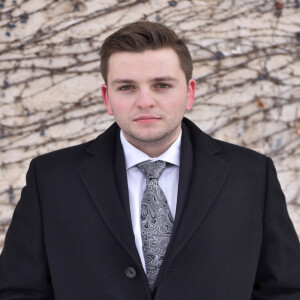
Friday Jun 01, 2018
Friday Jun 01, 2018
Alexander Ille, the Director of the Genome Cure Organization, joins me on this podcast episode. He received a Bachelors of Science from University of Waterloo and is currently a graduate student at D'Youville College, actively participating in genetic research. He also wrote a book, “The Genome Cure: The Future of Medicine for Alzheimer's, Cancer, Diabetes and more”.Alex founded the Genome Cure Organization in 2016 and is enthusiastic about genomic research and its medical implications. This mission of his organization is to push towards finding cures for a multitude of diseases through the advancement of gene therapy and gene editing.On This Episode We Discuss:Hereditary component of Alzheimer's DiseasePrevalence of Alzheimer’s Disease in the populations and how many people affectedTreatment options for people with Alzheimer’s DiseaseGenome Cure Organization’s efforts to make a difference in the Alzheimer’s DiseaseRecent research published about Alzheimer'sThe process of researching new treatments and a potential cureLength of phasesFunding requiredKey players/institutions in the researchCurrent clinical trialsWays the public can get involvedLearn more about Genome Cure Organization on their website and Instagram.Stay tuned for the next new episode of DNA Today on June 15th, 2018. New episodes are released on the first and third Fridays of the month. See what else I am up to on Twitter, Instagram, Facebook and iTunes. Questions/inquiries can be sent to info@DNApodcast.com.
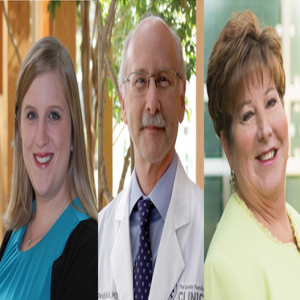
Friday May 18, 2018
Friday May 18, 2018
A panel of guest from Smith Family Clinic for Genomic Medicine in Huntsville, Alabama joins me for this episode exploring the power of whole genome sequencing for patients with undiagnosed diseases.On This Episode We Discuss:Whole genome sequencing (WGS) vs exome sequencingQualifications for patient to receive WGSNext steps after a “negative WGS”Value of WGS for patients not seeking a diagnosisHero fund to help families afford testingPredictions of the future use of WGSGenetic counselors role at the clinicApproach to explain testing to patientsNext steps for an untreatable/incurable diagnosisInteresting case studiesIncidental and secondary findings from WGSDr. David Bick is a board-certified clinical geneticist and clinical molecular geneticist with over 20 years of clinical experience. He sees patients and families who are struggling with a rare undiagnosed or misdiagnosed disease, and are considering genetic testing - specifically, whole genome sequencing.Carol Aiken is a certified medical practice administrator with the Professional Association of Healthcare Office Management (PAHCOM). She has over 30 years of medical practice administration experience across multiple physician practice specialties and hospitals.Meagan Cochran is a board-certified genetic counselor with clinical experience in pediatrics, adult medicine and genomics. As one of the genetic counselors at Smith Family Clinic she works with patients and families to understand the role of genomic medicine in healthcare and help them to incorporate this new information into their decision making processes.Follow Smith Family Clinic on Twitter, Facebook, Instagram, and visit their website for more information.Stay tuned for the next new episode of DNA Today. New episodes are released on the first and third Fridays of the month. See what else I am up to on Twitter, Instagram, Facebook and iTunes. Questions/inquiries can be sent to info@DNApodcast.com.
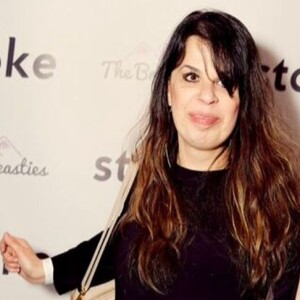
Friday May 04, 2018
Friday May 04, 2018
Irina Brooke joins me for this podcast episode. She is an patient advocate with the mission of supporting people with BRCA mutations and educating the public on this testing and how it can empower healthcare decisions.On This Episode We Discuss…Deciding to pursue genetic testing and resultsQualifications for having a strong family history of ovarian, breast and/or prostate cancerThe risk of passing on a BRCA mutation to a childMales inheriting gene mutationsGenetic counseling process and experienceCancer development risk level for people who have BRCA gene mutationsBeyond BRCA, additional gene mutations that increases one’s risk for developing cancerOptions for preventing and monitoring cancerRecovering from breast cancerSupport systems availableGetting involved in the patient advocacy communityBRCA community terms (previvor, mutantvivor, etc.)Advice to those with family history of cancer and those who have a BRCA mutationCheck out Irina’s Instagram, Facebook page, and Facebook group for women in the hereditary breast and ovarian cancer community with mutations (BRCA etc.). She also shares her journey on her website’s blog.Stay tuned for the next new episode of DNA Today on May 18th, 2018.New episodes are released on the first and third Fridays of the month. See what else I am up to on Twitter, Instagram, Facebook and iTunes. Questions/inquiries can be sent to info@DNApodcast.com.
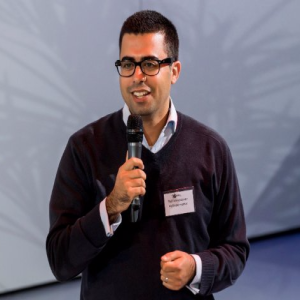
Friday Apr 20, 2018
Friday Apr 20, 2018
Rafi Mendelsohn is the Director of Public Relations and Social Media at MyHeritage. MyHeritage is the largest family history and DNA company that helps consumers to discover their ethnic origins and find new relatives. Their new pro bono initiative, DNA Quest, is currently helping adoptees and their birth families reunite through genetic testing, which we explore in this podcast episode. This offer is only available through the end of April 2018! Apply today for one of 15,000 free DNA kits. Learn more on MyHeritage's blog. On This Episode We Discuss:-How the project started-Who is eligible and how to apply for this free testing-What is required for the testing-The timeline of the project-The number of people who find their biological relatives through MyHeritage-Information provided in the MyHeritage results-New updates and innovations from My Heritage Don’t forget that April 25th is DNA Day! Check out my episode all about the history of the day and other fun facts.Stay tuned for the next new episode of DNA Today on May 4th, 2018 where I will be interviewing patient advocate Irina Brook about her BRCA2 mutation and hereditary breast cancer.New episodes are released on the first and third Fridays of the month. See what else I am up to on Twitter, Instagram, Facebook and iTunes. Questions/inquiries can be sent to info@DNApodcast.com.
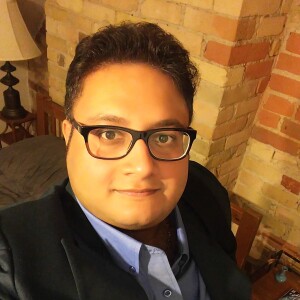
Friday Apr 06, 2018
Friday Apr 06, 2018
Joining me on this episode is Bibaswan Ghoshal. He is a Senior Bioinformatician at the Lunenfeld Tanenbaum Research Institute of Mount Sinai Health System in Toronto. He has his Master’s of Science in Medicine and finishing his PhD in Bioinformatics, Animal Microbiome and Agriculture from the University of Alberta. On this episode we discuss…The number of microbes in inside us and how they help usFactors/technology that impacted the start of this new fieldDifferences between studying the human microbiome and genomeTechniques/technologies used to study the microbiomeHuman Microbiome ProjectHealthy microbiomesFactors that affect microbiomesVariations between people’s microbiomesMicrobiome researchRole of a bioinformatics analyst in microbiome research Learn more about the microbiome through the University of Utah’s free interactive modules. You can follow Bibaswan on Twitter @bibaswanghoshal and read his blog at worldofbiba.wordpress.com. Check out the books Bibaswan recommends during the episode: Brain Maker by Dr. David Perlmutter and I Contain Multitudes by Dr. Ed Yong. Stay tuned for the next new episode of DNA Today on April 20th, 2018 where I will be interviewing Rafi Mendelsohn about a free DNA test for adoptees and biological families to be reunited. It's offered through April through MyHeritage's DNA Quest. New episodes are released on the first and third Fridays of the month. See what else I am up to on Twitter, Instagram, Facebook and iTunes. Questions/inquiries can be sent to info@DNApodcast.com
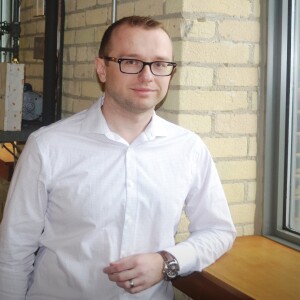
Friday Mar 16, 2018
Friday Mar 16, 2018
My guest joining me for this podcast episode is Dr. Pawel Buczkowicz. He is the Chief Medical Affairs Officer and the VP of Business Development at Gene42. He received his PhD in cancer genetics and molecular pathology from the University of Toronto. His research has been published in leading medical journals such as Nature Genetics. His discovery of novel mutations in human cancers and their associated clinical correlates, have led to a new World Health Organization classification that was implemented for paediatric gliomas in early 2016. Dr. Buczkowicz is passionate about improving healthcare experiences for both the patient and doctor and believes smart and efficient software will revolutionize the way medicine is practiced. On this episode, we discuss…Gene42’s Products: PhenoTips, PhenoTips Genomics, and OncoTipsHow clinicians/researchers use electronic health records Future of electronic health records in healthcareImportance of open-source databases Research on Diffuse Intrinsic Pontine Glioma (DIPG) You can follow Dr. Pawel Buczkowicz (@pbuczkowicz) and Gene42 (@gene42inc) on Twitter. Stay tuned for the next new episode of DNA Today on April 6th, 2018 where I will be discussing the human microbiome with Bibaswan Ghoshal! New episode are released on the first and third Fridays of the month. See what else I am up to on Twitter (@DNApodcast) , Instagram(@DNAradio), Facebook (@DNApodcast) and iTunes. Questions/inquiries can be sent to info@DNApodcast.com.
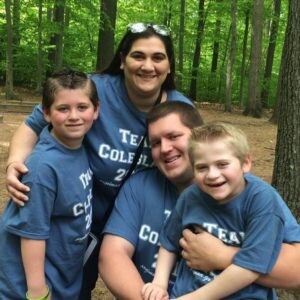
Friday Mar 02, 2018
Friday Mar 02, 2018
February 28th, 2018 was Rare Disease Day! Rare Disease Day is an opportunity to raise awareness for 7,000+ rare diseases and the 30 million Americans who are affected by a rare disease(s). There were events held worldwide to raise awareness. The theme for this year's Rare Disease Day is "Research" and the important role that patients play in gaining an understanding of rare diseases and developing innovative treatments or cures. This year's slogan is "Patients are not only subjects but also proactive actors in research."This episode features a couple interviews with presenters, who I caught up with at the end of the Rare Disease Day event in Hartford, CT in the Legislative Office Building. This specific event is one I have attended for a few years and provides an opportunity for patients, caregivers, medical professionals and industry representatives to come together and educate elected officials about rare diseases, and what it’s like to live with or care for someone with a rare disease in the state. A main focus of the event was newborn screening, including the addition of Pompe Disease and Mucopolysaccharidosis Type 1 (MPS1) for Connecticut. Connecticut covers over 60 diseases, while most other states only cover ~40 diseases. A young man named Hunter Pageau spoke about his extremely rare disease, SMARD, Spinal Muscular Atrophy with Respiratory Distress. SMARD is an aggressive respiratory/neuromuscular disease causing paralysis and inability for patients to breathe on their own. And 1 of only 12 people in the United States, and of 80 worldwide, with SMARD. Being the trailblazer he is, he started YES, the young empowerment society for kids. He is a true inspiration and leader! Going with the theme of this year’s Rare Disease Day, researchers shared how vital funding is to their research and the cascade effect initial funding can have. Stormy Chamberlain, PhD, a researcher at UCONN who focuses on Angelman Syndrome, explained how the Connecticut Stem Cell Research Fund led to NIH funding and partnerships with pharmaceutical companies such as Alexion. Presenting alongside her was Jim Kubicza, a father of a child who has Angelman Syndrome. As a fierce patient advocate, he joined the Angelman Syndrome Foundation to help raise some of this research money. He also shared some aspects of being the father of a child with a rare disease, including the burden of expensive seizure medication, full-time supervision of his son, and fighting for basic needs for his son at school. He shared more in our interview in this episode. There was also a family with a daughter who has Dravet Syndrome. Beth Fox shared about her daughter's 250 unconscious seizures, despite trying multiple different medications, and their battles with her insurance company for coverage. In a cute moment, her daughter joined her at the podium, excited to introduce herself. Jean Kelley also spoke as a patient advocate. Her son Brian has a rare neurological disease called Adrenoleukodystrophy (ALD) for which she started an organization, Brian’s Hope. She shares more during her interview in this episode. Senators and Representatives also spoke about their support for rare diseases including the Connecticut Rare Disease Task Force. This bipartisan group focuses on newborn screening, insurance issues, support services in school systems among other topics. It takes 2.5 billion dollars and 12 years to develop a drug, so we need to give tax credits to companies so they have incentive to come to Connecticut for their research, which then helps the state. It’s fantastic that an event like this can bring legislators into the conversation so we can take action to help families with rare diseases. For more information about Rare Disease please visit NORD’s rarediseases.org and check out the other episodes about rare diseases including previous Rare Disease Days.
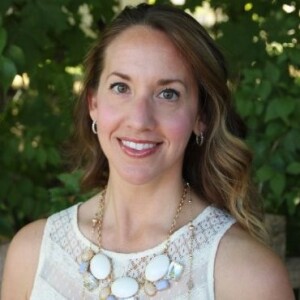
Friday Feb 16, 2018
Friday Feb 16, 2018
To raise awareness for February Heart Month, I am joined by Amy Sturm, a cardiovascular genetic counselor. She has 15 years of experience in cardiovascular genetics, personalized genomics, research, and education. Amy is the Director of Cardiovascular Genomic Counseling and Professor at Geisinger Health System's Genomic Medicine Institute. There she provides leadership for the scaling up of genomic counseling efforts in the MyCode Community Health Initiative. She serves as the President-elect and the Cardiovascular Genetics Expert at National Society of Genetic Counselors (NSGC). Amy also works with The Familial Hypercholesterolemia Foundation and The Sudden Arrhythmia Death Syndromes (SADS) Foundation on their important advocacy work, research, and medical education programs. On this episode, we discuss…..Roles of a cardiovascular genetic counselorInherited cardiovascular diseasesFamilial HypercholesterolemiaLong QT SyndromeRed flags for an inherited cardiovascular disorder in a family historyGenetic testing including the cascade screening methodPreventative treatments for patients with a positive testingImportance of testing childrenNotifying at-risk relatives of patients To learn more from Amy, follow her on Twitter and read a few of her blog posts below: Am I at Risk for Heart Disease?Familial Hypercholesterolemia: The Common, Inherited Cause of Heart Disease Rarely Talked About Curious about the patient perspective in cardiac genetic testing process with a genetic counselor? One of her patients also wrote about his genetic testing experience guided by Amy. Stay updated on new episodes and activities of DNA Today via Twitter, Instagram, Facebook and iTunes. Questions/inquiries can be sent to info@DNApodcast.com.
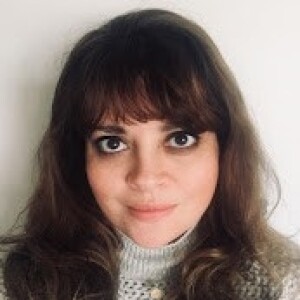
Friday Feb 02, 2018
Friday Feb 02, 2018
We are kicking off Rare Disease Month, which leads up to Rare Disease Day (February 28th, 2018). My guest is Eden Lord, Co-Founder and CEO of My City Med. The company is an online health and medical resource site that allows patients to search for a doctor and read reviews, and also connect with non-profit resources and online community support groups. On the show, Eden explains how both patients and physicians can benefit from My City Med’s services and resources. She also provides insight into creating MobiMedQR.com a service that allows patients/caregivers to create a medical profile accessible through QR codes. My City Med and MobiMedQR were inspired by her own family’s needs to navigate the healthcare system. Eden is a mom to kids with rare diseases and during the episode, she shares her role as a caregiver and the journey her family has been through. She is also an advocate pursuing legislation to advance rare disease research. Attend a Rare Disease Day 2018 event! If you are in Connecticut, join me at the two events. The first is Quinnipiac University’s event on their North Haven Campus on 2/27 at 1 pm or an event in Hartford on 2/28 at 8:30 am in the Legislative Office Building. Not in Connecticut? Find a local Rare Disease Day event here.
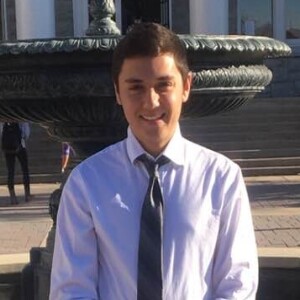
Friday Jan 19, 2018
Friday Jan 19, 2018
After having a family history of Huntington's Disease, Antonio Maltese was pre-symptomatically genetically diagnosed with the disease himself. This diagnosis has motivated Antonio to become a fierce patient advocate with big plans to change the future of people with Huntington’s disease. Huntington’s Disease is progressive brain disorder that causes uncontrolled movements, emotional problems, and loss of thinking ability. This neurodegenerative disease is caused by an excess of CAG repeats in the Huntingtin gene (HTT). Unaffected people have this DNA sequence repeated 10 to 35 times. Those that may be affected have 35-39 repeats and those with over 40 repeats will develop Huntington’s Disease. This disease is inherited in an autosomal dominant pattern, meaning if a parent has Huntington’s Disease their child has a 50% chance of inheriting the disease. Antonio shares about his paternal grandmother who had Huntington's Disease and why he decided to pursue genetic testing. The biggest breakthrough in neurodegenerative diseases for 50 years recently occurred, 46 patients had their Huntington genes silenced at the University College London as part of a research study. Antonio I and discuss the impact this could have on Huntington's Disease and other neurodegenerative diseases. Antonio shares the resources he has benefited from including HDBuzz and the blogs where he has collected his research for others: huntingtonsinitiative.blogspot.com and chuffed.org. Don't forget to follow the show on Instagram, Twitter, and Facebook!








